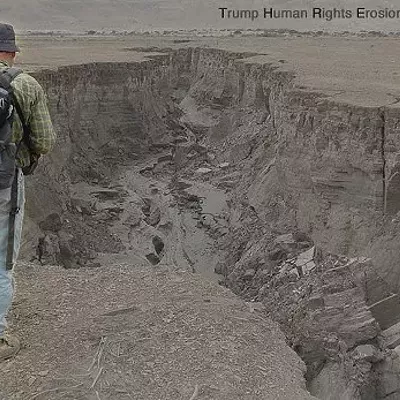When the Indian Gaming Act of 1988 resulted in a flurry of successful casinos, tribes nationwide suddenly had political and legal clout, which they haven't been afraid to exercise--especially against the Department of Interior.
The Interior Department manages 11 million acres of land held in trust for the individual Indian landowners. A class-action suit alleges the government has squandered tens of billions of dollars since 1887, collected from oil, gas, timber and grazing royalties, as well as other uses of Indian land.
Some experts estimate that $176 billion in royalties from land owned by 350,000 American Indians nationwide should have been paid. When untold billions of dollars were found to have been squandered, the suit was filed in Washington in 1996 on behalf of individual Indians throughout the country to seek an accounting of at least $13 billion of those Indian funds. It's money the tribes should have received and have been forced to make up for out of their own budgets, they claim.
In November, the House Resources Committee held a field hearing on the Indian trust-fund lawsuit, led by Rep. J.D. Hayworth (R-Ariz.), the co-chair of the Congressional Native American Caucus. Held on the Salt River Pima-Maricopa Indian Community Reservation, it was one of several hearings to consider a legislative settlement of the case and to prevent congressional appropriators from undermining the rights of Indian account holders.
It's pending, but a settlement isn't expected until 2007.
In the meantime, the Bush administration, fearing more lawsuits from tribes that have gained financial clout from casino operations, has asked the Supreme Court to limit lawsuits filed by Indian tribes against the Interior Department concerning tribal resources. Bush also wants the court to reverse two appeals court rulings that found the government liable for damages to the Navajo Nation and White Mountain Apache Tribe. Appeals courts said the government was liable for damages as high as $600 million in the Navajo case and $14 million in the White Mountain case. These were big wins for Indian Country, since a recent University of Colorado Indian Law study found tribes prevail in the current Supreme Court only one-fifth of the time, less than any other ethnic group.








